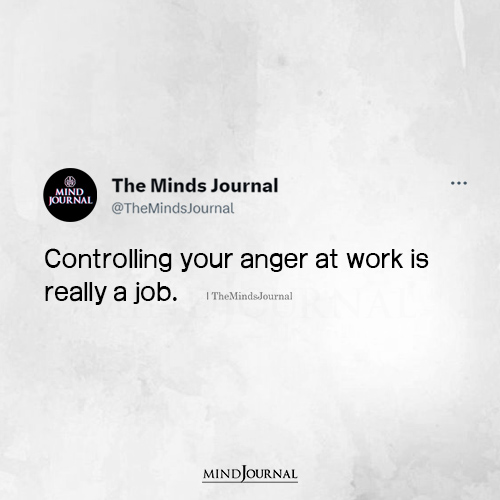Do you constantly say to yourself “I don’t want to work anymore!!”? Hey, we’ve all been there. Staring at our alarm clocks, dreading the sound that signals another long day of work. The thought of dragging yourself out of bed and getting ready to do the same everyday routine can be downright depressing.
In this fast-paced world, it’s no wonder that many of us have reached a breaking point when it comes to the daily grind. But the question is, why do we feel this way? Is it normal to not want to work anymore? What are the reasons for not wanting to go to work?
Well, grab a cup of coffee (or a glass of wine, absolutely no judgment here!), because we’re about to delve into eight relatable reasons why you might be telling yourself “I don’t want to work anymore”.
Related: My Job Is Too Stressful: Are You Suffering From Shit Job Stress Disorder (SJSD)?
“I Don’t Want To Work Anymore!”: 8 Reasons Why You Are Tired Of The Daily Grind
1. You don’t feel excited and positive to go to work anymore.
What we need and what interests us can change over time. It’s pretty normal to feel dejected when you realize that your job doesn’t excite you anymore, and the enthusiasm you once had for it is gone.
If you realize you’re not into your job like before, it’s crucial to figure out why and consider ways to reignite that spark for your work. Should your excitement go away, you should pinpoint why this happened and explore options that can help you feel positive about your job again.

2. Your commute to work is too long and exhausting.
A lengthy commute every day to work can really tire you out, especially if it’s an hour or more each way – that turns your day from long to never-ending!
Tiredness and fatigue will often lead you to ask yourself if all the traveling back and forth is truly worth it; two extra hours on the road daily basically increases your work time from eight hours to ten!
So, ask yourself whether one of the reasons for not wanting to go to work is this never-ending travel you need to undertake 5-6 days a week.
3. You feel completely depleted and burned out.
Are you thinking “I don’t want to work anymore”, because you are tired and burnt out?
When you feel physically tired, you sleep to give your body some much-needed rest. However, when you mind feels tired and overwhelmed, it’s a whole different ballgame. If you feel burned out, it leads you to feeling defensive, agitated, isolated, depressed and annoyed.
If you are finding it hard to deal with burnout, or you feel like you just can’t take it anymore, then consult a therapist, and explore ways to address your feelings.
Quitting your job won’t solve this problem, you need to know how to handle such emotions, so that it doesn’t follow you in your next workplace.
4. You work in a toxic environment and your co-workers are also toxic.
If you’re stuck in a workplace that is anything but positive, and on top of that, your co-workers are also toxic, then it’s very natural to hate going to work. If you despise every aspect of your job, be it the color of the office walls to the face of your boss, then you are mentally done with your job.
Additionally, if you feel like your co-workers and boss are always trying to sabotage you and they never appreciate any of your efforts, then it is one of the major reasons for not wanting to go to work.
Related: 35+ Tips On How To Have Fun At Work While Staying Productive
5. You feel unappreciated at your workplace.
There’s nothing worse than feeling invisible, ignored and undervalued in your workplace. It’s easier to confront such things at home, but it’s an entirely different thing when it’s your workplace.
If the place you work at doesn’t support an open-door policy, it’ll be hard to feel positive and tell yourself constantly that you should keep on working there. Is it normal to not want to work anymore if you are unappreciated at work? Absolutely!
If you are working hard and you are putting in a lot of effort, then it should be recognized and appreciated. When you don’t get any of these things, it’s natural to want to quit.
When your boss only points out your mistakes and ignores what you’ve done well, they’re not recognizing your worth, and you deserve better.

6. You are scared of failing.
It’s natural to want to give up when we don’t succeed in something. So, if the idea of quitting your job is on your mind, it might be because deep down, you’re worried you’ll mess it up.
Being scared of failure is one of the biggest reasons for not wanting to go to work, and it also saps your drive and makes you want to throw in the towel before things go south.
On top of that, it can also prevent you from grabbing new opportunities as they come. Is it normal to not want to work anymore due to fear of failure? Yes, it absolutely is.
7. You don’t like working in an office environment anymore.
After a point, many people feel that they don’t like working in an office environment. The everyday commute, getting ready for work, making food to bring to work, and then traveling back home everyday can start to feel a lot after a point.
Especially since we have got a taste of remote work, many people prefer that to going to office. Remote work is more convenient, time-saving and economical too, so naturally you might want to quit your job and work for a company which provides the opportunity to work remotely.
8. You were passed up for a promotion or transfer which you were assured you would get.
Is it normal to not want to work anymore? Sometimes, yes. Especially if the reason is the below one.
It can feel very demotivating when you’ve been working your a** off, hoping to climb up the corporate ladder or bag a much-needed promotion, only to be overlooked.
Missing out on that promotion can leave you feeling short-changed and unappreciated. This blow can take a toll on how you feel about yourself and cast a shadow over your job satisfaction.

To realize you just didn’t measure up hits hard. That kind of rejection can sour your emotions, leading to negativity that creeps into every aspect of your work life. Sometimes it boils down to money.
If your goal is to earn more and it’s clear that the bump in salary isn’t coming through at this job, sticking around may not be an option.
Related: How To Feel Happy At Work Again: 5 Fail Proof Ways
If you constantly tell yourself “I don’t want to work anymore”, then try to understand if any of these reasons are at play. These reasons for not wanting to go to work are quite justified, and if you relate to any of these, then maybe it’s time to change jobs or take a break.
What do you think, is it normal to not want to work anymore? What can be some other reasons for not wanting to go to work? Let us know your thoughts in the comments down below!










Leave a Reply